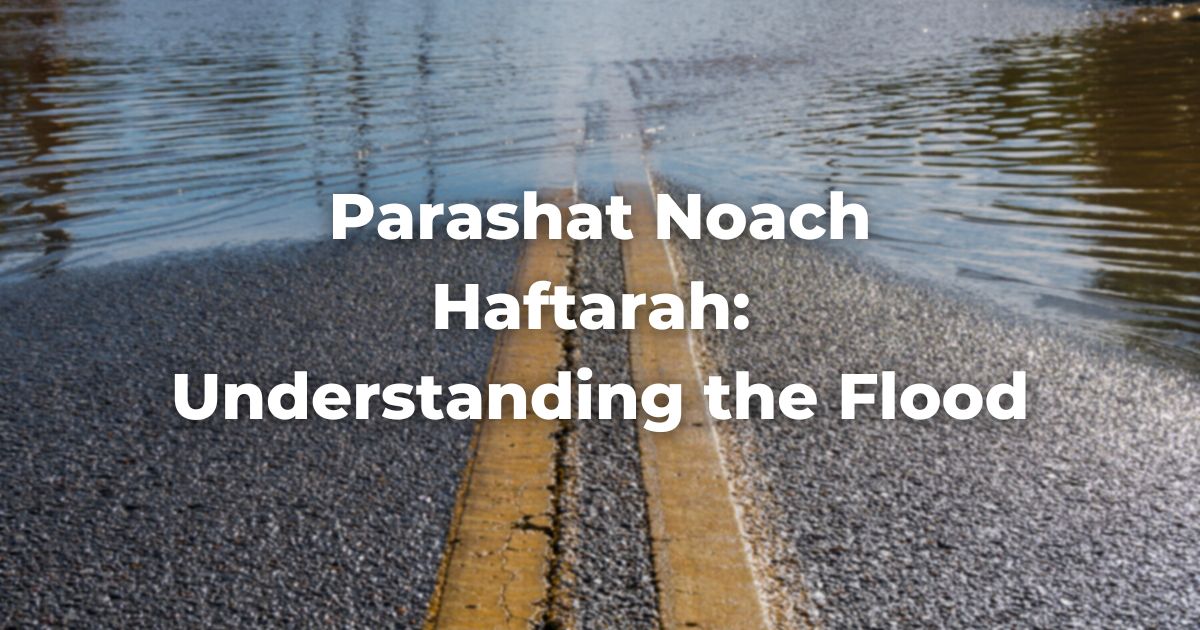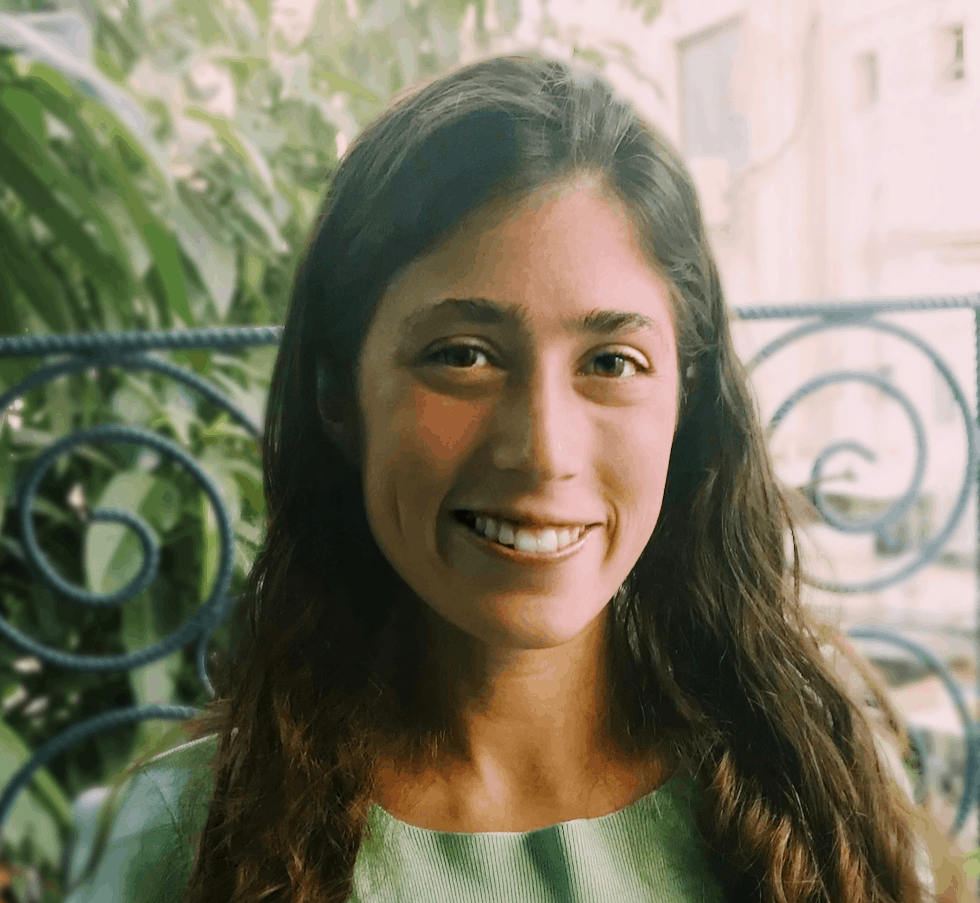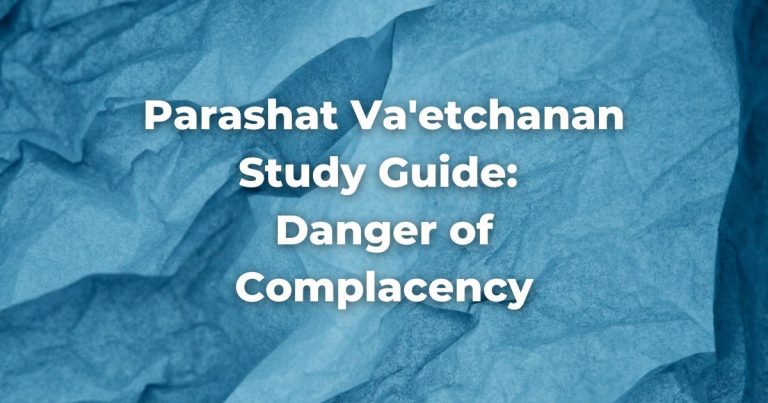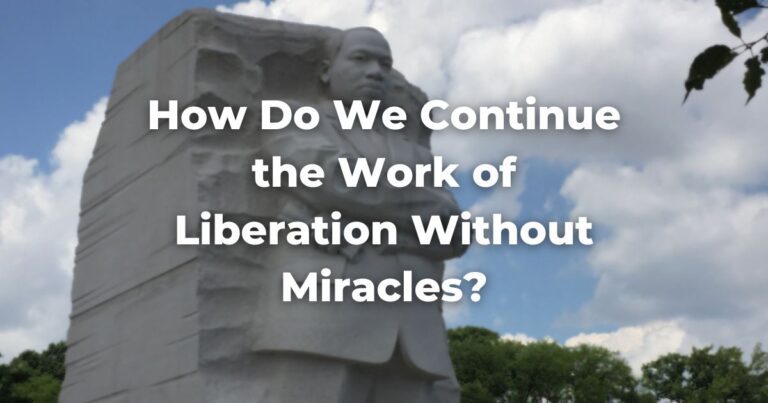Parashat Noach Haftarah Reflection
What does it mean when God references the flood that destroyed the world in the time of Noah? How does God understand it?
Is it meant to be a threat or proof of God’s ability to keep promises or is mentioning ancient events just a quirk of being a being who has been around since time immemorial? The reference appears in this week’s haftarah, Isaiah 54-55.
In the wake of the destruction of Jerusalem and the First Temple, God explains that God has not in fact abandoned Zion. We read in Isaiah 54:10, “For the mountains may move and the hills may be shaken, but my loving kindness shall not move from you and my covenant of peace shall not be shaken.”
It sounds good. God promises us this eternal covenant of peace.
But what good is God’s covenant of peace to us when our homeland has just been destroyed? How are we to understand God’s conception of peace when mountains are moving and hills are shaking? Surely if God really viewed us with loving kindness, we wouldn’t be made to suffer these sorts of life-shattering calamities.
It is in this context that God references the flood. We read in Isaiah 54:9, as translated by Robert Alter, “For as Noah’s waters is this to Me, as I vowed not to let Noah’s waters go over the earth again, so have I vowed not to be furious with you nor to rebuke you.”
It’s a similar story. In both cases, humans go astray because of their inherent flaws, God destroys the world as they know it, a small remnant survives, and God makes a covenant with the survivors swearing that God won’t do it again.
In Noah’s time, the flaw was that humans were simply made to be evil. By the time of the destruction of the Temple, the flaw is that which is stated repeatedly in Deuteronomy, namely that we will go astray and not follow the commandments which we have been given.
We can choose to read the similarities of these two stories as cyclic or as progressive.
In a cyclic reading, God is doing what God always does and we are doing what we always do.
The story of reconciliation and return after the destruction of Jerusalem is a retelling of the story of the flood and a foreshadowing of the exiles and returns to come. History repeats itself and not much changes. The good news is that even the worst things, the very destruction of the world itself, does not break the bond we have with God.
In a progressive reading, the relationship we have with God is continually being refined through covenant.
We, the created, are absurdly weak when compared to God, the creator. And yet, God chooses to put Godself in a bound covenantal relationship with us, limiting God’s power of destruction over us.
At first, this was just God promising not to destroy the world. But we get the successive covenants, with Abraham, at Sinai, and then in the prophetic books after the destruction of Jerusalem.
Each time, we have suffered something. God has inflicted some sort of destruction or tragedy upon us. And then God promises never to do it again. And indeed, God does not do it again.
We get ever closer to a world in which our deficiencies are accepted without punishment as God limits God’s ability to punish through destruction.
So what does it mean when God chooses to reference the flood? How does God understand it? We cannot know the infinite, the creator’s mind. But we can choose how to read it for ourselves.
See more: Parashat Noach
Originally posted as part of the Conservative Yeshiva at the Fuchsberg Jerusalem Center’s Torah Sparks. Support Torah learning from the Fuchsberg Jerusalem Center/Conservative Yeshiva for leaders and seekers around the world here.
Authors
-

Bex Stern Rosenblatt is the Conservative Yeshiva’s Faculty-in-Residence for the Mid-Atlantic Region of the United States, teaching Tanach, using the techniques of close-reading, theater, feminist readings, and traditional commentators. Bex also directs the CY’s recruitment efforts in North America. After finishing her B.A. in History and German at Williams College, Bex received a Fulbright Grant to Austria. She later earned an M.A. in Tanakh from Bar Ilan University and has also studied at the Conservative Yeshiva and Bina Jerusalem. Bex is the founder of Havruta Tel Aviv, an organization that facilitates guided pair-learning of the Tanakh.
-



The Fuchsberg Jerusalem Center (FJC) is a home in the heart of Jerusalem where leaders and seekers can find an authentic place in Jewish tradition to call their own. FJC offers opportunities to study, pray and explore within an egalitarian and inclusive setting, creating multiple pathways for finding personal and communal meaning.




